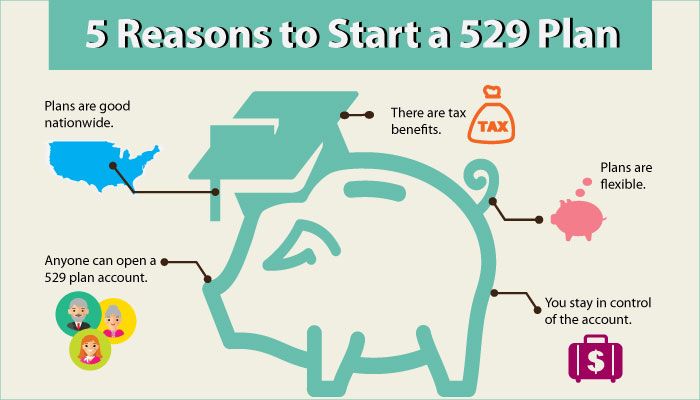Table of Content
Dwight is a graphic designer who operates his business out of the guesthouse of his primary residence. The guest house meets IRS requirements to be considered a home office. Throughout the year Dwight used Hurdlr to keep track of his home utility expenses, which totaled $8,000, and he can attribute 20% these costs to his guest house. If you’re self-employed, you can still claim the home office tax deduction for qualifying costs, whether you use the actual expenses or the simplified method.

This means the coffee shop where you work occasionally doesn’t disqualify you. If you’re a roofer but you administer and manage your business exclusively from your home office, this still qualifies. A home office can be a separate room, or a space in your house dedicated to business. This prevents your heater from kicking on more often and will reduce the electricity expense of heating your home office. This prevents your air conditioner from kicking on more often, which reduces the electricity expense of cooling your home office. Your other option for switching electricity plans is to do it the old-fashioned way — manually.
MORE ON UTILITIES TAX DEDUCTION
Statements are typically accepted from banks, credit unions and building societies. Credit card statements, provided they're recent, are also generally considered a legitimate option. Expenses that benefit only the personal portion of the home are not deductible at all. Our solutions for regulated financial departments and institutions help customers meet their obligations to external regulators. We specialize in unifying and optimizing processes to deliver a real-time and accurate view of your financial position. Enabling tax and accounting professionals and businesses of all sizes drive productivity, navigate change, and deliver better outcomes.

Telephone bills are considered direct business expenses, and are not part of the home office deduction. Therefore, you may be able to deduct a portion of your home or cellular phone bill even if you don't qualify under the home office rules. Deduct normal operating expenses from gross rental income to reduce taxable net income. Utilities are generally tax deductible for a rental property, even if the property is a short-term rental or only occupied part of the year. Direct expenses are costs that only apply to your home office, such as furniture and equipment, supplies, and so on.
Direct Home Office Expenses
Whether you work from your home office, a dedicated space, your car, or even just own a rental property, your business utility expenses including electricity, gas, water, telephone and internet will likely be deductible. Depending on what type of business you operate, your utilities will be deductible on your Schedule C , Schedule E or Form 8829 . You can multiply the cost of electricity, gas, trash removal, and cleaning services by your percentage of business use. Your telephone wouldn’t be included because the first telephone line to your house is considered to be for personal use. But you can claim a deduction for a second line that’s used exclusively for business on Schedule C. The regular home office method requires you to calculate the percentage of your home used for business purposes by dividing the square footage used for business purposes by the total square footage of your home.
For example, if you use space as a home office where you go every month to pay bills, that’s regular use. But using it only once a year to prepare your tax return probably wouldn’t apply. You can take a tax deduction for your use of this space if you use it regularly and only for your business. “Home” can be a house, apartment, condo, mobile home, or even a boat, if you can live on it. Expenditures for items that aren’t permanently attached to or benefit your work area as a whole are deducted on Schedule C if you’re a home business owner or independent contractor.
Apportionment Required If Expenses Benefit Entire House
The regular version of the deduction is a bit more complicated, as you must keep track of all your actual expenses. You can write off up to 100% of some expenses for your home office, such as the cost of repairs to the space. First, calculate the percentage of your home-office area used for businesses by dividing the total home area by your office area. Let’s say your total home area is 1,800 square feet and your home-office business area is 396 square feet.

Of course, homeowners would be able to deduct all their real estate taxes and qualified mortgage interest as itemized deductions, regardless of whether they use their home for business purposes. However, claiming these expenses as part of the home office deduction shift them from an itemized deduction to a deduction from gross income. The simplified method is still only available to self-employed people who run their businesses from home.
If you are self-employed and work at home — even just part-time — you may claim a home office tax deduction for expenses related to your home office. Alas, if you’re an employee who has been working from home due to the COVID-19 pandemic, that amazing home office tax deduction you’ve heard so much about does not apply. You can use the simplified method in one year and the actual-expenses method in a later year. In this case, you must calculate the depreciation deduction for the later year. Keep in mind that the requirements for who qualifies for the home office deduction doesn’t change based on which deduction method you use.

You can only write off house cleaning for your home office, not any part of your home used for personal purposes. Multiply the cost of house cleaning in the tax year by the percentage of your home used for business. Most business furniture and equipment can’t be written off as a deductible expense. Another huge electricity user is the heater and air conditioning in your home.
In order to qualify as an employee, your employer must require you to maintain a home office as part of your contract of employment. What you can claim as an employee may seem convoluted since the CRA has implemented new regulations to accommodate the increase in work-from-home individuals due to COVID-19. Stessa helps both novice and sophisticated investors make informed decisions about their property portfolio. An overview on the benefits and drawbacks of using an LLC with your income properties, along with the cost, ownership structure, asset protection, and financing implications. Form 4562 to calculate the amount of depreciation reported on Schedule E. Sign Up NowGet this delivered to your inbox, and more info about our products and services.
Direct expenses are those for just your home office business space, like painting or repairing the space. To use the actual-expenses method, you’ll need the gross income from your business for the year . For example, if the home office where you conduct your business is 155 square feet, multiply that by $5. Employees who work at home may no longer use the home business tax deduction. This brings us to the final piece, claiming the actual square footage of your den, spare bedroom, or some corner you've blocked off for exclusive and principaluse. You might be surprised to learn that some consumer-esque services can be deducted.
If you work at home as an employee — even for your employer’s convenience — you can no longer deduct your out-of-pocket expenses. The new tax law did away with deductions for unreimbursed employee expenses. Tax reform in 2018 changed the home office deduction, including what traditional employees could deduct related to their work expenses. If your business is in a federally declared disaster area during the year, you may be able to deduct casualty losses for your home business.
Partners in partnership businesses may be able to deduct business use of home expenses if the partnership doesn’t reimburse them for these expenses. The total from each partner’s calculations goes on these three tax forms schedules E, SE, and K-1. “Regular use” means you use that space on a regular basis, not just occasionally or incidentally.
The utility deduction for Uber Driver / Rideshare drivers will likely be limited to telephone and internet. Gas and other vehicle expenses should be deducted as part of automobile expenses using either the standard mileage rate or actual method. Direct expenses relate only to the part of the house used for the work, including expenses such as painting and repairs. Your deduction would be $150 for that $1,000 paint job if you had your entire house painted and your home office takes up 15% of your home’s total square footage.
We encourage you to start a conversation with your employer about how they could help offset some of those extra costs — especially if you won’t be returning to the office any time soon. Speaking of Zoom, many home businesses will increasingly make use of a number of subscription services. That may include a Zoom Pro subscription, Skype or Microsoft Teams. Monthly charges for web hosting, domain name maintenance, email service from a dedicated hosting party, etc., are all good examples.

No comments:
Post a Comment